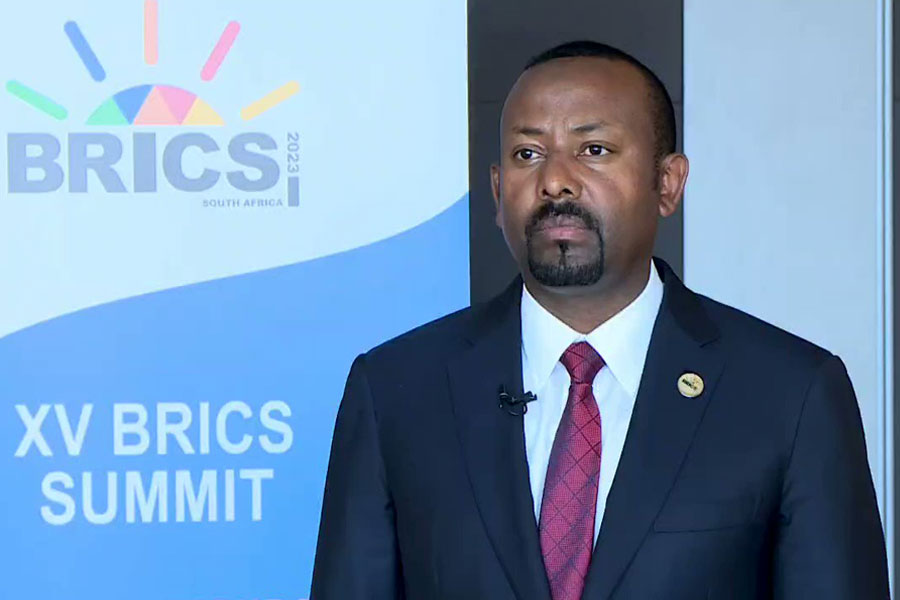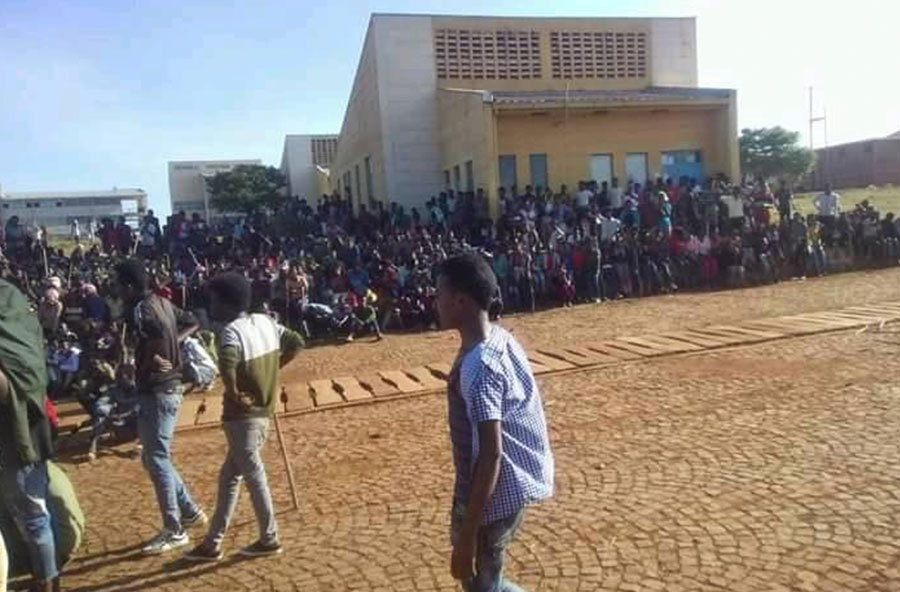
Viewpoints | Nov 19,2022
Feb 20 , 2021
By Christian Tesfaye
Too many promises have been made by the regimes that have come and gone. They have insisted that during their rule prevailing political problems would be addressed. They do not just mean economic ones, such as inflation or food insecurity, but also political challenges. They insist that the sins of the past will not be repeated; that the underlying factors that led to a violent change in government would not be repeated under their watchful eye.
They imply that political challenges could be solved. The opinion leaders and intellectual class also, by and large, agree with this view. They may disapprove of the method, and they may even think that those with state power are, in fact, making matters worse. But they agree that Ethiopia could solve its problems under the right circumstances — if only everyone could heed their recommendations.
Such sentiments are entirely understandable. The legacy of European political, cultural and intellectual renaissance over the past centuries have persuaded many around the world that political progress towards democracy is in the cards for everyone. Build some institutions here, assure some diversity there, and organise platforms for honest debate and discussion here and there, and voila, justice and equality!
If only it was so easy. If only it was possible to solve political challenges. Unfortunately, it is of mindboggling complexity. It is not science, per se, where equations could be solved and sophisticated engineering problems could be overcome through advances in technology.
What we are dealing with here is people. When they bring themselves to the discussion table, they bring a certain frame of mind. They come with their limited fields of vision and economic-cultural orientation. There is a bias here, but there is also pride — two almost inseparable concepts.
Nationalism — and one can take any currently prevailing in Ethiopia — is a source of feeling safety, pride and dignity. This nationalism makes part of people’s identity, no matter how terrifying it is to others. To deny it from them is to deny their frame of reference — at least one of their references — through which they locate themselves within the world, especially their social-cultural belonging. It is also true that no amount of honest debate will succeed in dissuading them of their beliefs anytime soon.
Thus, when many politicians and intellectuals speak of solving political challenges, they underestimate or dismiss these powerful social forces.
This is not to say that people should not try to address political differences, to close the gap. But it is also critical to limit our ambitions, lest we overstretch ourselves much the same way Marxist idealists did during the Student Movements of the late '60s and early '70s.
What we should instead aim for is to balance the various nationalist movements and sentiments. Each of them threatens the other, thus none should be allowed to be overwhelming. For instance, there are fever pitch debates over the fate of Addis Abeba, which if either side is allowed to get all of its requests will inevitably lead to chaos, if not more.
This balancing of interests is not in the service of making the various interest groups happy. There is just no room for that in Ethiopia or any other country. The balance should be to chasten the nationalisms to the degree that violence is avoided.
Non-violence could be used as the base point for negotiation and social harmony as the goal. Ethiopia is too poor to afford to waste valuable resources buying tanks and ammunition. This is a resource that could be used to build roads and buildings and secure a bright future in the emerging digital services economy.
The principle of non-violence is critical in one more meaningful way in our search for social harmony. It makes it possible for the national dialogue to have a starting point that is easy to agree on. Mainstream political groups, for all their biases and remonstrations, generally agree that violence should be avoided if possible. From there, the dialogue could be used to work toward the agreement that violence as a means to securing a political agenda should be avoided.
This is a powerful place to start from and should allow us to contain the political forces that keep driving toward violence. Perhaps, in the long term, this could lead to some wider understanding and tolerance of one another. Perhaps.
PUBLISHED ON
Feb 20,2021 [ VOL
21 , NO
1086]


Viewpoints | Nov 19,2022

Radar | Aug 26,2023

Verbatim | Aug 21,2021

Agenda | Dec 05,2018

Editorial | Mar 04,2023

Viewpoints | Oct 21,2023

My Opinion | Jan 01,2022

Editorial | Jan 11,2020

Editorial | Nov 04,2023

My Opinion | Jul 13,2020

My Opinion | 131499 Views | Aug 14,2021

My Opinion | 127855 Views | Aug 21,2021

My Opinion | 125833 Views | Sep 10,2021

My Opinion | 123463 Views | Aug 07,2021

Dec 22 , 2024 . By TIZITA SHEWAFERAW
Charged with transforming colossal state-owned enterprises into modern and competitiv...

Aug 18 , 2024 . By AKSAH ITALO
Although predictable Yonas Zerihun's job in the ride-hailing service is not immune to...

Jul 28 , 2024 . By TIZITA SHEWAFERAW
Unhabitual, perhaps too many, Samuel Gebreyohannes, 38, used to occasionally enjoy a couple of beers at breakfast. However, he recently swit...

Jul 13 , 2024 . By AKSAH ITALO
Investors who rely on tractors, trucks, and field vehicles for commuting, transporting commodities, and f...

Jun 28 , 2025
Meseret Damtie, the assertive auditor general, has never been shy about naming names...

Jun 21 , 2025
A well-worn adage says, “Budget is not destiny, but it is direction.” Examining t...

Jun 14 , 2025
Yet again, the Horn of Africa is bracing for trouble. A region already frayed by wars...

Jun 7 , 2025
Few promises shine brighter in Addis Abeba than the pledge of a roof for every family...

Jun 29 , 2025
Addis Abeba's first rains have coincided with a sweeping rise in private school tuition, prompting the city's education...

Jun 29 , 2025 . By BEZAWIT HULUAGER
Central Bank Governor Mamo Mihretu claimed a bold reconfiguration of monetary policy...

Jun 29 , 2025 . By BEZAWIT HULUAGER
The federal government is betting on a sweeping overhaul of the driver licensing regi...

Jun 29 , 2025 . By NAHOM AYELE
Gadaa Bank has listed 1.2 million shares on the Ethiopian Securities Exchange (ESX),...